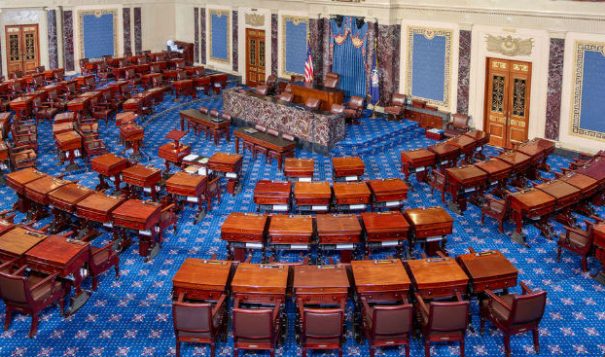 U.S. Senate
U.S. Senate
It is the century mark this year that Nisqually Indians were dispossessed of all portions of their Pierce County 1884 allotted Nisqually Indian Reservation by a state court order of April 1918. In August 1918, Franks Landing was acquired as a 6-acre treaty lieu replacement for 206 acres taken from the Frank (Kluck-et-sah) family by the April decree.
In the 1960’s, King and Pierce County courts entered judgements that each the Muckleshoot and Puyallup Tribes had ceased to exist and that no such Indians remained that could claim rights under the Medicine Creek or Point Elliott Treaties of 1854 and 1855. The Puyallup’s Reservation in their case was ruled to have been abolished and to be non-existent.
In a companion case naming 12 Nisqually River Indian treaty fishermen, the Medicine Creek Treaty survived. The fishermen however were totally prohibited from fishing in any off-reservation waters outside the reduced 1918 Thurston County Nisqually Indian Reservation. In the January 12, 1967 decision of the Washington Supreme Court upholding that absolute prohibition, the State’s highest court declared:
“Should the state trial court and this court fail to properly interpret the off-reservation treaty rights of an Indian, the Supreme Court of the United States is available for a final determination. A state court has the right to be wrong in such a case … .” Department of Game v. Neugent Kautz, 70 Wash. 2d 275 (1967).
The state courts would repeatedly exercise the “right to be wrong” for denying Indian treaty fishing rights and these Nisqually-Puyallup cases would return three times to the U.S Supreme Court for decisions in the following decade in a set titled, The Puyallup Trilogy.”
But a larger case, United States v. Washington [Civ. No. 9213], was filed in federal court 48 years ago this month – September 1970 – that resulted in the Boldt Decision of 1974 and two full-scale reviews by the United States Supreme Court respectively in 1977 and 2018! And the U.S. v. Washington case remains active under the continuing jurisdiction of the District Court of Western Washington going forward.
It is only because Justice Anthony Kennedy recused himself from this year’s decision in the case – thereby resulting in a 4-4 vote that left the 9th Circuit Court of Appeals opinion in place – that the Indian gains in protecting and managing treaty rights and natural resources under tribal sovereign authorities were preserved in the courts and not obliterated by a majority in the Supreme Court. An entry of Brett Kavanaugh onto the Court will produce that destructive hostile 5-4 majority!
And while the “right of discovery” has been absent as determinant in any of the U.S. v. Washington and related cases for more than 50 years, the State of Washington sought to change that in the appeal decided this year. The two main cases relied upon by Washington’s Attorney General Bob Ferguson were City of Sherill v. Oneida Indian Nation (2005) and Rizzo v. Goode (1976) – the latter eliminating damages liability from police officers for shooting ‘ghetto blacks’ in Philadelphia based on an interpretation of the post-civil war Amendments (13, 14 and 15) to the Constitution.
The 2000 amicus brief of Kavanaugh and Bork argued that “equal protection” and “voting rights” of the Amendments prohibited the State of Hawaii from disallowing White Citizen Rice to vote in Hawaiian Native or Native Hawaiian issue or funding elections along with “the Natives.” Bob Ferguson argued that Rizzo disallowed federal courts from assessing any judicially enforceable duties on the State of Washington to control or prevent actions taken by its agencies or anyone to install barriers or culverts blocking or denying passage to salmon headed for spawning grounds in streams, creeks and rivers.
Since 2005, Onandaga Faithkeeper Oren Lyons has repeatedly directed that attention be drawn to Oneida’s Footnote 1, not only for what it says but also because it was authored by Justice Ruth Bader Ginsburg in adversely applying and giving present day currency to “The Doctrine of Discovery.” This is to say that as perceived “friends of Indians” on the Supreme Court fade away or turn against the solidity of Indian treaty rights and Indian sovereignty, these become all the more tenuous and increasingly at jeopardy of loss, denial or destruction. In that sense, we are all Hawaiians, Alaskan Natives, Indians, Mashpees and Wampanoags!
